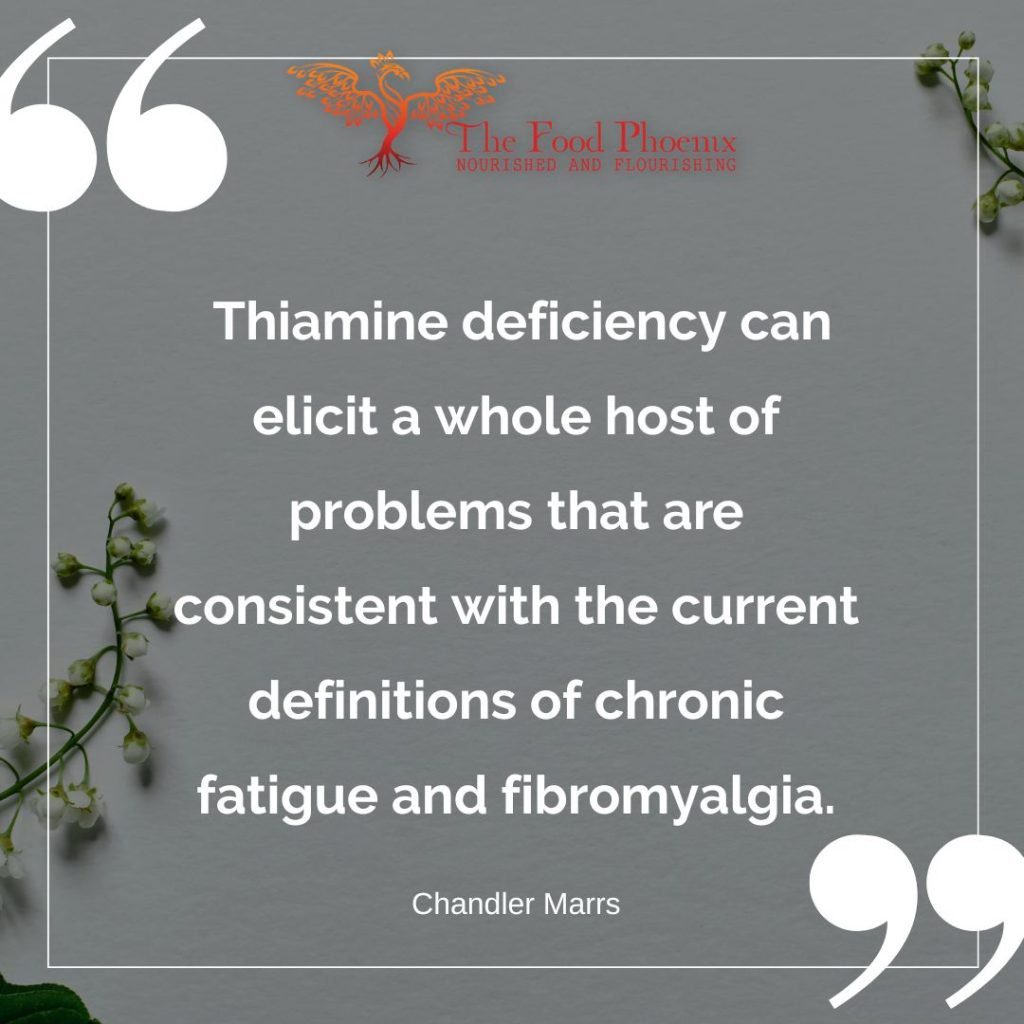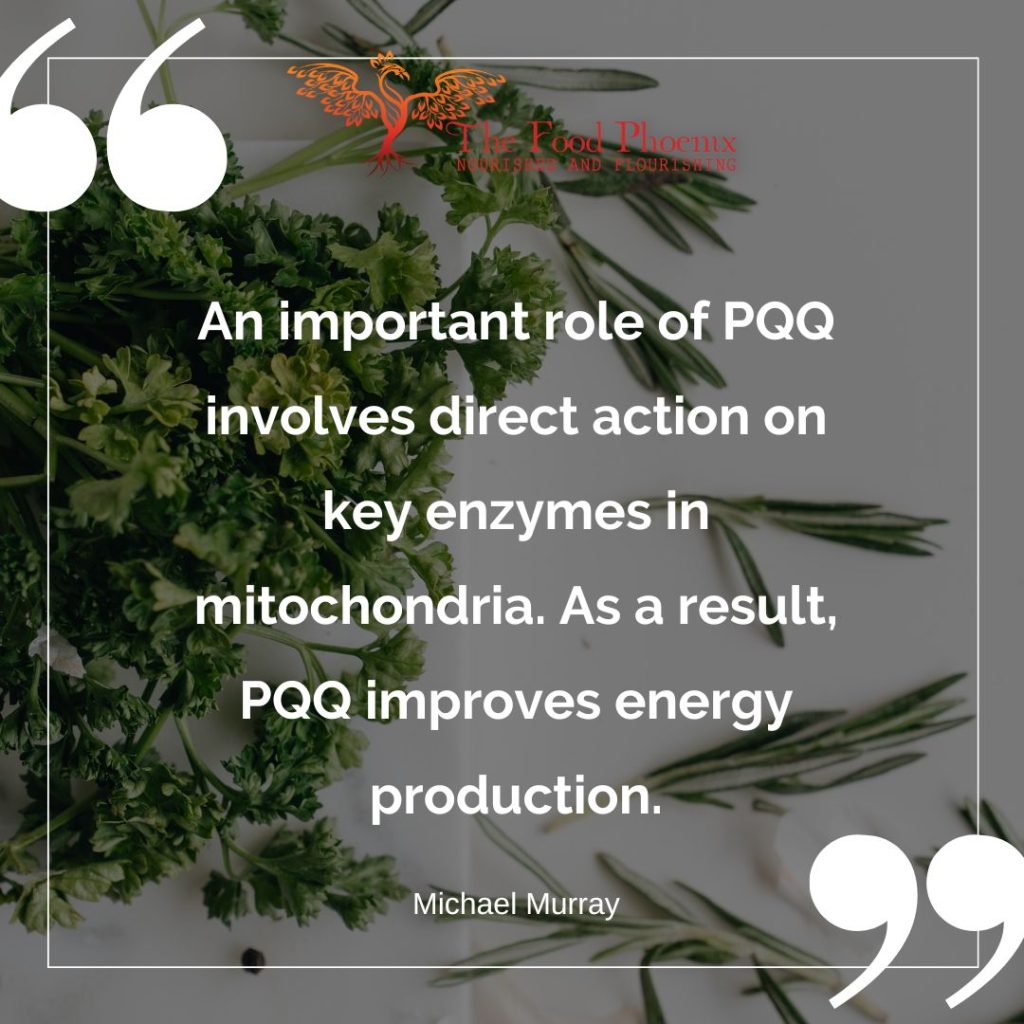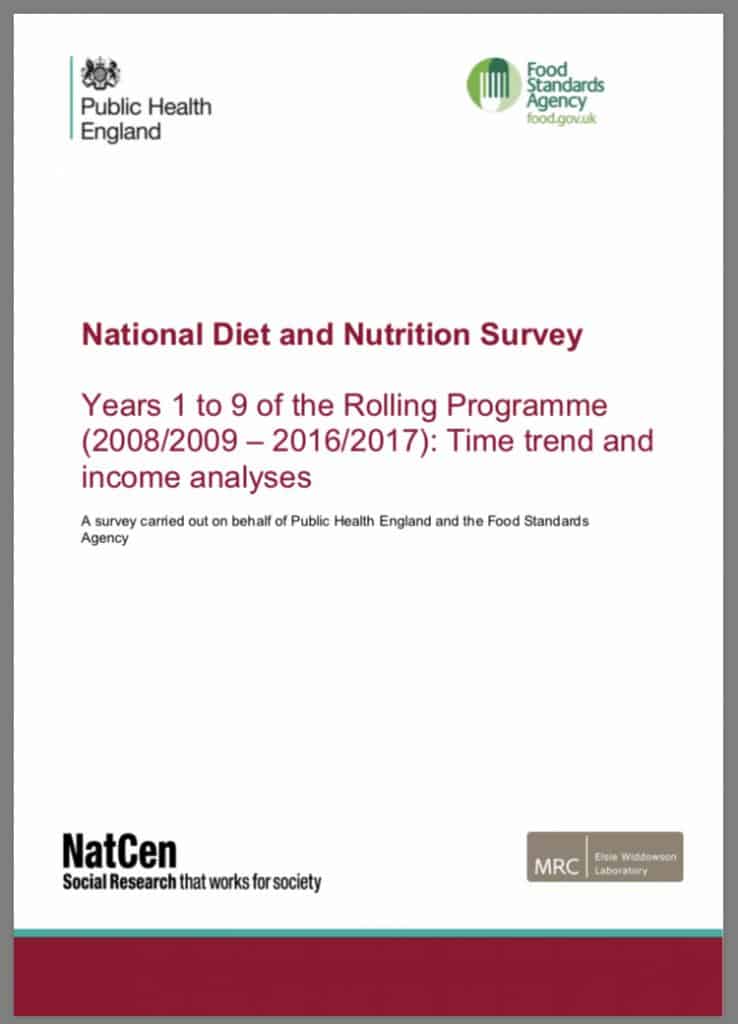Chronic fatigue syndrome is a common illness that affects millions of people worldwide. Chronic fatigue is a debilitating condition that can leave you exhausted and unable to carry out everyday activities. Although it can be challenging to treat, many natural options can vastly improve your quality of life when you suffer from fatigue. This article will discuss some of the best energy supplements for chronic fatigue syndrome.
1: B Vitamins
2: Magnesium
3: Zinc
4: EPA and DHA Fish Oil Supplements
5: Acetyl-L-Carnitine
6: PQQ
7: Alpha-lipoic Acid
8: Fat-soluble Vitamins

B Vitamin supplements for chronic fatigue syndrome
B vitamins are essential for good health and well-being. They play important roles in helping the body convert food into energy and supporting healthy brain function, skin, hair, and eyes. While you can naturally find B vitamins in many food sources such as meat, eggs, and dairy, some people may not get enough of these essential nutrients. So taking a multi-nutrient supplement may help. Multinutrient supplements usually contain significant amounts of vitamin B and other essential vitamins and minerals.
Taking a vitamin B supplement could help ensure you are getting an adequate daily intake of these essential nutrients and help to maintain normal metabolism and energy levels.
Some B vitamins deserve a special mention because of their stellar effects on your health and metabolism.
Here are some of the best B vitamin energy supplements for chronic fatigue.
Benfotiamine
Benfotiamine is a synthetic form of vitamin B1, also known as thiamine. Unlike thiamine, benfotiamine is fat-soluble, so you can absorb it more readily from your intestines. According to studies, you can absorb benfotiamine up to five times more efficiently than thiamine. This makes benfotiamine an excellent supplement for those looking to benefit most from their vitamin B intake. Additionally, benfotiamine may be more effective at treating symptoms of thiamine deficiency than thiamine itself.
Thiamine deficiency is more widespread than most people believe. Alcohol, tea and coffee can deplete your body’s stores of thiamine. There are also groups of people at increased risk of thiamine deficiency. These include:
- pregnant women,
- breastfeeding women,
- people participating in high-intensity physical exertion,
- people living with cancer,
- people with liver disease,
- those with infections,
- people with hyperthyroidism,
- surgical patients,
- people with malabsorption,
- people with eating disorders,
- post-gastric bypass surgery,
- and alcoholics.
You can sometimes find benfotiamine in multi-nutrient supplements but more commonly in stand-alone supplements. It’s used to improve metabolism in diabetes and other metabolic disorders. Benfotiamine has been studied extensively for its potential effects on glucose metabolism and blood sugar levels.
It is thought that benfotiamine inhibits enzymes that lead to the formation of advanced glycation end products (AGEs). AGEs are associated with diabetes complications. Studies have also suggested that benfotiamine supplementation can help improve insulin sensitivity and reduce inflammation.
Additionally, benfotiamine has synergistic effects when taken with magnesium supplements, which can help enhance the protective effects against diabetes and other metabolic disorders. In conclusion, benfotiamine may benefit those looking to improve their glucose metabolism, reduce inflammation, and improve insulin sensitivity.

Pantothenic acid
Pantothenic acid, or Vitamin B-5, is essential for human health. It plays a crucial role in maintaining healthy skin, hair, and eyes, as well as aiding in the production of hormones, neurotransmitters, and antioxidants like coenzyme Q10.
Pantothenic acid is an essential nutrient that is vital to energy production. Along with magnesium and the amino acid cysteine, we use vitamin B5 to make coenzyme A, which we need for many metabolic processes. Coenzyme A is necessary for fatty acid metabolism, the Krebs cycle, and the breakdown of carbohydrates and proteins. Coenzyme A also helps produce hormones, like testosterone and estrogen, and performs other essential functions throughout the body. Therefore, getting enough pantothenic acid in your diet or supplements is crucial to ensure your body has enough coenzyme A to perform its necessary metabolic processes.
You can find pantothenic acid in food sources like liver, kidneys, meat, poultry, eggs, fruits and vegetables. However, if you’re not getting enough pantothenic acid in your diet, vitamin B5 supplements will help replenish your levels. Multinutrient supplements are also an excellent way to ensure you get enough of this vital vitamin.
A pantothenic acid deficiency can lead to symptoms such as poor gut health, fatigue, muscle cramps, depression, and anaemia. To ensure you get the recommended daily dose of this essential vitamin, incorporate plenty of pantothenic acid-rich foods into your diet and consider taking a multi-nutrient supplement to help fill any gaps.
Biotin
Biotin is a water-soluble vitamin essential for hair, nails, and skin health. You’ll find biotin in many foods, including eggs, cheese, and meats. However, most people don’t get enough of this vital nutrient due to our modern lifestyle. Lack of biotin has been linked to dry and brittle nails and poor hair quality. Biotin deficiencies are also common in vegetarians and vegans since these groups don’t often get enough protein or dairy products containing biotin. Fortunately, you can find biotin in many multi-nutrient supplements.
Since biotin is such an important nutrient, it’s essential to ensure you get the recommended levels of biotin when supplementing with a multi-nutrient. However, it’s important to note that not all multi-nutrient supplements contain sufficient levels of biotin. Meanwhile, oxalate toxicity can increase your biotin requirements by inhibiting biotin-dependent enzymes.
One notable benefit of biotin is its ability to improve skin health by promoting cell growth and regeneration. In addition, biotin may also help reduce wrinkles and signs of ageing by improving collagen production and decreasing inflammation in the skin.
Also known as vitamin B7 or vitamin H, biotin is found in many multi-nutrient supplements and is naturally present in our bodies. Although biotin is essential for a healthy life, very high blood levels from supplementing with extremely high doses can cause false signals in specific lab tests. Indeed, high levels of biotin can interfere with thyroid function testing and immunoassays, causing inaccurate results. The tests responsible for creating incorrect results use biotin-streptavidin assays.
Stop taking high-dose biotin-containing supplements for at least 2-3 days before the test to reduce the risk of biotin interference. Additionally, it would be best to let your doctor or nutritionist know that you are taking such supplements so that they can take extra precautions to ensure accurate testing and interpretation. It is also important for physicians and patients to be aware of the risks associated with biotin interference and to work together to guarantee valid laboratory results. Interference in laboratory testing is an under-recognised problem that can lead to getting the wrong diagnosis and treatment.

Two minerals that are amongst the best energy supplements for chronic fatigue
Magnesium
Magnesium deficiency can lead to fatigue, decreased muscle strength and poor physical performance. Therefore, taking a magnesium supplement can benefit individuals who are low in this mineral or at risk of deficiency. Additionally, combining magnesium supplements with vitamin B can help to boost energy levels further and improve overall metabolic health.
Magnesium is one of the essential minerals we need for optimal energy metabolism. It is a necessary cofactor in producing adenosine triphosphate (ATP), the body’s primary energy source.
Magnesium activates enzymes in the metabolism of carbohydrates, proteins, and fats, helping convert these nutrients into energy. Therefore, consuming an adequate amount of magnesium may help to improve metabolism and increase energy levels.
People most at risk of magnesium deficiency are:
- those with restricted diets,
- people with diabetes,
- those with gastrointestinal disorders,
- people who use certain prescription medications,
- and those who are malnourished or underweight.
Magnesium is an essential mineral found in many foods, including dark, leafy greens, nuts, seeds, and whole grains. However, due to food intolerances, poor diet, and absorption issues, many people do not get enough magnesium in their daily diets and may benefit from a magnesium supplement. Additionally, excessive consumption of alcohol or caffeine, as well as stress, can cause magnesium deficiencies. It is also important to note that specific vitamins, such as vitamin B6 and vitamin D, need to be present to maximise the body’s ability to absorb magnesium. Combining high-dose vitamin B6 with magnesium may benefit people with low blood magnesium levels who are undergoing severe stress more than other people.
A multi-nutrient supplement can help ensure the body gets all the necessary vitamins and minerals. If you think you may be at risk of magnesium deficiency, talk to your nutritionist about how to supplement.
Zinc
Zinc is an essential mineral for human health and is involved in numerous metabolic processes. We even need zinc for the proper functioning of our immune systems. Unfortunately, zinc deficiency is quite common today, especially among those with poor diets, chronic stress or digestive issues. To prevent zinc deficiency, you need a diet that includes zinc-rich foods like red meat, organ meats, and shellfish like crabs and lobsters.
High stress can take a toll on your physical and mental health. One of the nutrients often depleted during times of high stress is zinc. Zinc plays a role in many bodily functions, including producing hormones and enzymes. Zinc deficiency can lead to a weakened immune system, increased risk of infection, skin problems, poor wound healing, and even depression. Supplementing with a multi-nutrient containing zinc is recommended to ensure your body has what it needs to stay healthy under stress.
Heavy metals are a significant culprit in causing chronic fatigue, as they can build up in the body and cause various health issues. You can encounter heavy metals in many places, including MRI dyes, food, water, air, and even in cosmetics and electronics. Lead, mercury, arsenic, and cadmium are some of the most prevalent heavy metals implicated in causing chronic fatigue. However, gadolinium from MRI contrast injections is an increasing cause I frequently see in my practice. You can discover more about how gadolinium contrasts can cause horrible side effects here.
Lead is found in paint, gasoline, and water pipes, while you’ll discover mercury in seafood and water. Arsenic may occur in rice, pesticides and groundwater, and cadmium is present in soy-based foods, dark chocolate, batteries and cigarettes.
When these heavy metals accumulate in your body, they can lead to inflammation and oxidative stress, which can then cause chronic fatigue. To reduce your exposure to heavy metals and help prevent chronic fatigue, limit your intake of contaminated foods, water, air, and products. Additionally, you can take supplements that contain chelators—ingredients that help bind heavy metals in the body so you can expel them. By following these simple steps to reduce your exposure to heavy metals and chelate them from your body, you can help prevent chronic fatigue.
Heavy metals can have a significant impact on the body, particularly when it comes to zinc levels. Heavy metals such as lead, mercury, and arsenic can all deplete zinc levels in the body. This can be particularly problematic as you need zinc to absorb other vitamins and minerals, such as Vitamin B and magnesium, as zinc is integral to digestive health.
To avoid zinc depletion, take a supplement that contains chelated forms of zinc, as these will help to protect the body from heavy metal toxicity naturally. Additionally, avoiding foods containing heavy metals, such as certain types of seafood, is an effective way to help prevent zinc depletion.
EPA and DHA Fish Oil Supplements are some of the best energy supplements for chronic fatigue
EPA and DHA fish oil supplements are a great way to help improve energy levels, boost mood, and support cognitive function. In addition, these supplements are great for people with chronic fatigue syndrome (CFS) because they are omega-3 fatty acids. Omega-3s are essential for the health of the brain and spine and are helpful for people with CFS.
EPA and DHA omega fats play a vital role in the health of our cells and mitochondria. EPA and DHA omega fats within cell membranes keep our cells flexible and functioning correctly. Omega-3 fatty acids are integral to our health; they help regulate inflammation, reduce the risk of heart disease, and support cognitive health.
EPA and DHA are two of the primary omega-3 fatty acids found in fish oil, while ALA is another omega-3 fatty acid found in plant sources. However, ALA is inferior to EPA and DHA as it’s challenging and inefficient to convert ALA into EPA and DHA. Mitochondria also contain EPA and DHA in their cell membranes, so these fatty acids provide energy to the cell. So by making sure you’re getting the right amounts of EPA and DHA omega fats in your cell membranes and mitochondria, you can help support your overall health.
Remember to store your fish oils in the fridge as they are delicate and prone to turning rancid from exposure to heat and light.
Acetyl-L-Carnitine
Acetyl-L-carnitine (ALCAR) is one of the best supplements for chronic fatigue patients. It is an amino acid that helps to reduce fatigue, increase energy levels, and improve mental clarity. ALCAR is involved in the metabolism of fatty acids, helping to enhance fat burning, making it especially beneficial for those trying to lose weight. Acetyl-L-carnitine works with coenzyme A, synthesised from vitamin B5, magnesium and cysteine. You need ALCAR to transport fats into your mitochondria. In this way, ALCAR helps you to “burn” fats. When combined with a multi-nutrient, ALCAR can help to improve overall health and reduce symptoms associated with chronic fatigue.
Studies have shown that acetyl-L-carnitine can help to reduce fatigue, increase energy levels, and improve mental clarity in those suffering from chronic fatigue.
"Carnitine is essential for mitochondrial energy production. Disturbance in mitochondrial function may contribute to or cause the fatigue seen in Chronic Fatigue Syndrome (CFS) patients. Previous investigations have reported decreased carnitine levels in CFS. Orally administered L-carnitine is an effective medicine in treating the fatigue seen in a number of chronic neurologic diseases."
You may not have heard of PQQ before, but it's another of the best energy supplements for chronic fatigue

PQQ, or Pyrroloquinoline quinone, is a vitamin-like compound that is gaining traction in the world of health supplements. PQQ has powerful antioxidant and mitochondrial biogenesis properties, making it an attractive choice for individuals looking to optimise their health. PQQ is associated with improved energy production, cognitive function, and overall health. In addition, PQQ appears to be beneficial when combined with other nutrients, like magnesium, coenzyme Q10 (CoQ10), and multi-nutrients.
Research suggests that PQQ helps support the production of new mitochondria within cells, especially when taken with CoQ10 supplements. This can increase energy production, cognitive performance, and overall health. Ultimately, PQQ and mitochondrial biogenesis are indispensable topics for anyone looking to support their health with nutritional supplements. As a result, PQQ is an increasingly popular supplement for optimising health with its many benefits and compatibility with other nutrients.
"An important role of PQQ involves direct action on key enzymes in mitochondria. As a result, PQQ improves energy production."
Alpha-Lipoic Acid
Alpha-lipoic acid is a necessary cofactor for thiamine, a water-soluble vitamin known as Vitamin B1, in energy metabolism. Thiamine is essential for several of the body’s metabolic pathways and is needed to break down carbohydrates and fats into energy. Without alpha-lipoic acid, you can’t use thiamine efficiently, so your body cannot produce energy.
Alpha-lipoic acid is a powerful antioxidant, and it helps to protect cells from damage caused by free radicals. Alpha-lipoic acid also plays a role in converting glucose into energy and is necessary for cell growth and regeneration. It is a superb supplement found in various forms, such as capsules, tablets and liquids. And it’s a naturally occurring compound in foods like organ meats, broccoli, potatoes, and Brewer’s Yeast.
Alpha Lipoic Acid (ALA) has been studied for its ability to bind and help eliminate heavy metals from the body, including lead, cadmium and mercury. ALA can also help protect the body from the harmful effects of heavy metal exposure. Taking ALA supplements can help the body eliminate these harmful toxins and maintain optimal health and energy levels.
People use alpha-lipoic acid (ALA) supplements to treat various health issues, from nerve damage to diabetes. However, taking alpha-lipoic acid can cause side effects if you are thiamine deficient. As mentioned above, thiamine, or vitamin B1, is essential for proper energy metabolism and cognitive function. You may experience fatigue, confusion, and cardiac changes if you lack this nutrient. Taking alpha-lipoic acid when thiamine deficient can increase your requirements for thiamine and cause thiamine deficiency symptoms. That’s why I only recommend supplementing with ALA alongside other supplements that include thiamine, like benfotiamine. By ensuring you have adequate levels of thiamine, you can reduce the risk of experiencing adverse reactions to ALA supplementation.
Alpha-lipoic acid can also compete with other vitamins and minerals for absorption in the body. For example, biotin and pantothenic acid compete with alpha-lipoic acid for transport through the sodium-dependent multivitamin transporter (SMVT). Iodine also uses the same transporter to enter cells.
As discussed above, biotin helps metabolise carbohydrates, fats, and proteins, while pantothenic acid supports energy production. Therefore, both vitamins are requisite for good health, and you should consume them in adequate amounts. However, due to the competitive nature of alpha-lipoic acid, it can reduce the absorption of iodine, biotin and pantothenic acid, thus decreasing the efficacy of these nutrients. To combat this issue, take a multi-nutrient supplement that contains the Vitamin B complex and iodine to ensure proper absorption. This combination will help support healthy cell metabolism while providing adequate amounts of these nutrients for optimal absorption.
Additionally, discuss any supplement use with a knowledgeable healthcare provider to ensure safety. Doing so can help you get the most out of your supplementation without risking your health.
Fat-soluble vitamins
Fat-soluble vitamins are a vital part of a healthy diet and can play an essential role in helping to boost energy levels in those with chronic fatigue. Vitamins A, D, E and K are all fat-soluble vitamins in many foods. For example, liver, cod liver oil, and egg yolks are good sources of vitamin A. You’ll also find lesser amounts of vitamin A in dairy and meat. At the same time, fatty fish such as salmon, mackerel, anchovies, sardines and herring, as well as dairy products, are good sources of vitamin D. Vitamin E is found in nuts, seeds, and sweet potatoes, while you’ll source vitamin K2 from liver, egg yolks, the dark meat of poultry and nattō. On the other hand, you’ll find vitamin K1 (a less useful form of vitamin K than K2) in leafy green vegetables.
These vitamins are essential for optimal energy levels, as they are involved in many metabolic processes that our bodies need to stay energised. Therefore, getting an adequate intake of these vitamins through our diets can help to keep our energy levels up and reduce fatigue. Regularly eating liver is the best way to ensure sufficient vitamin A. Additionally, taking a vitamin D3 and K2 supplement can help ensure that we receive the necessary amounts of these vital fat-soluble vitamins to boost energy in chronic fatigue. And you can make vitamin D in your skin when exposed to ultraviolet B (UVB) radiation for a few hours on either side of solar noon during late spring, summer, and early autumn.

Conclusion
These are some of the best energy supplements for chronic fatigue syndrome. Each has its benefits, so choosing the ones that are right for you is paramount. Please remember that many of these nutrients work synergistically, so combining supplements may give better effects than taking only one or 2 of them. And you need to be careful to balance your intakes of biotin (vitamin B7), pantothenic acid (vitamin B5), alpha-lipoic acid (ALA), and iodine as they compete with each other for uptake into your cells.
Read this article next to learn how toxins can cause fatigue by dampening your metabolism.
While taking supplements can be a helpful strategy for reducing your fatigue levels, you’ll need to take a more holistic approach to recover fully. And that includes looking at the mind-body connection. This post will help to explain what this is.
Anxiety usually goes hand in glove with chronic fatigue. If you’re struggling with anxiety, you may find this post helpful.
If, like most of us, you’ve turned to calorie-restricted diets to manage your weight, you should read this post describing the devastating consequences a whole-foods, plant-based diet had on the energy levels and mental and physical health of young men.
If you are struggling with your health and energy levels and want individual support in recovering your health, you can set up a free clarity call with me to discuss what might be happening and how to feel better.




“Your blog has been an invaluable resource for me. 🌟”